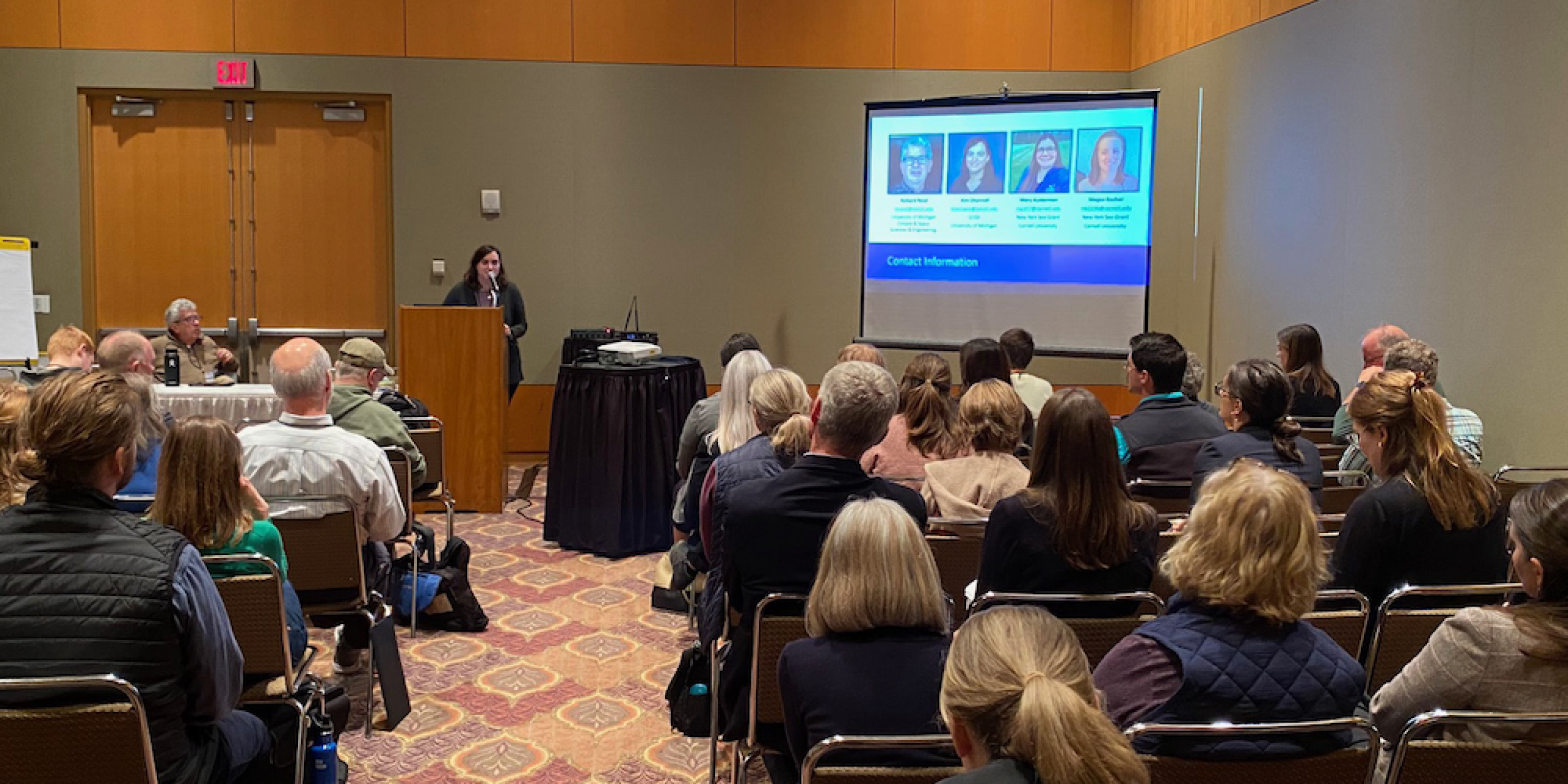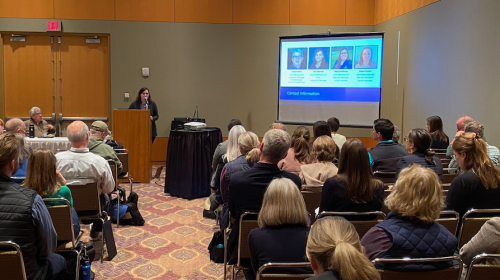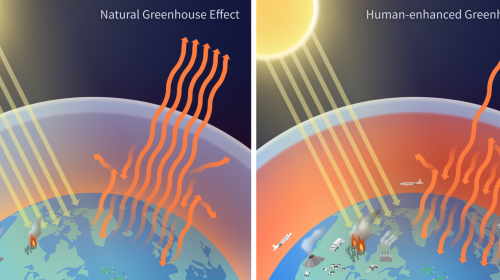Members of the Great Lakes Integrated Sciences and Assessments (GLISA), a NOAA Climate Adaptation Partnership (CAP) team, published an article in Frontiers in Climate titled, “Scenario planning for climate adaptation and management: a high-level synthesis and standardization of methodology.” Doctoral student Lunia Evodie Oriol and investigators Jenna Jorns, Kim Channell, and Richard Rood authored the article.
Scenario planning is a tool used to explore a set of plausible futures shaped by specific trajectories. Participatory scenario planning (PSP) convenes participants of various backgrounds and uses creative methods to build consensus, trust, cooperation, and learning and bridge science-policy interfaces. PSP is increasingly used for planning, policy, and decision-making in the context of climate change.
The authors pulled from four systematic reviews of PSP to substantiate the credibility of the process and identify a set of standard practices to make PSP a more accessible and usable tool for researchers, policymakers, practitioners, and other users. Based on their analysis, the authors propose that four processes are integral to maximizing PSP’s usability for end users: 1) identifying social imbalances throughout the PSP process, 2) recognizing bias as inherent to PSP, 3) explicitly addressing and incorporating uncertainty, and 4) allocating resources for monitoring and evaluation. They recommend further study in these areas.
For more information, contact Jessica Garrison.










